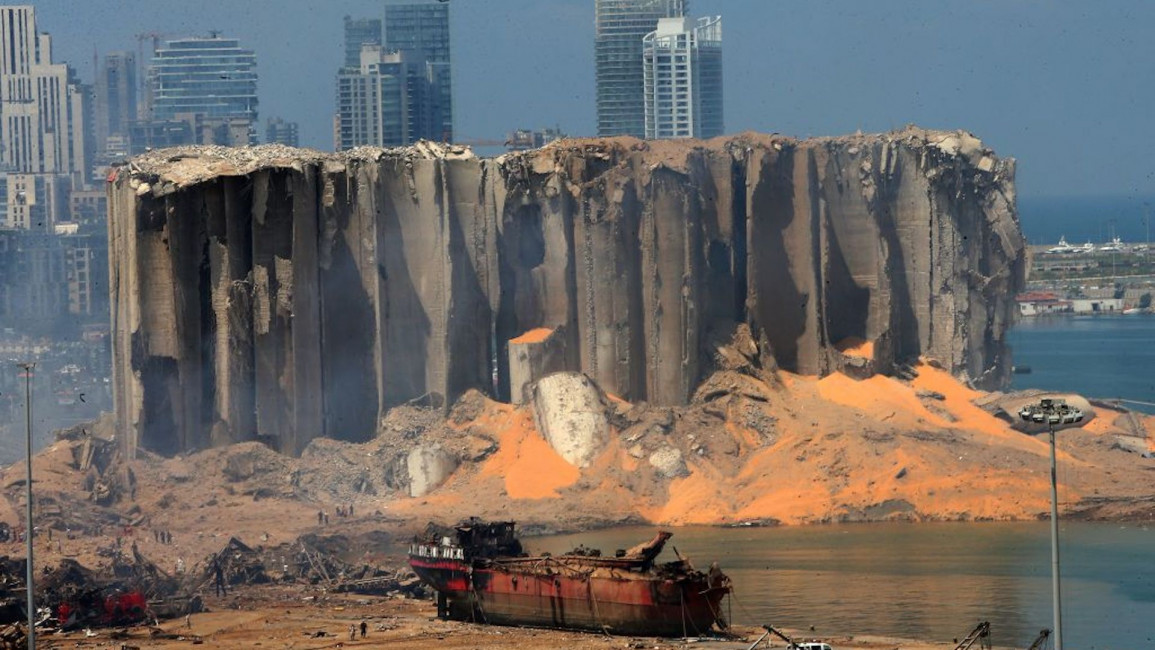French firm to turn grain from Lebanon port blast into compost
A French firm aims to turn tonnes of rotting grain at Beirut's devastated port into compost, the company said on Tuesday, nearly a year after Lebanon's worst peacetime disaster ravaged its silos.
The detonation of a huge stockpile of fertiliser at the port last August 4 killed more than 200 people and wrecked huge swathes of the capital.
Inside the port, the shockwaves pummelled through the port's silos, sending waves of imported grain spilling out.
Today, large mounds of rotting grain emit an overwhelming stench, not far from the wrecks of two boats sunk in the explosion.
France's Recygroup, in partnership with Lebanese firm Mondis, is to funnel 1.3 million euros ($1.5 million) into converting the wheat to a new use, for agriculture.
"We imagine we'll find 20,000 to 30,000 tonnes of grain. We think we can treat them within three to four months," Recygroup co-founder Christophe Deboffe told AFP.
Mondis head Marwan Rizkallah said work would start within a week.
Deboffe said they estimated half of the grain is mixed with bits of concrete or iron, and it needs to be separated from the blast rubble using an industrial sieve.
Before the blast, the silos could hold up to 100,000 tonnes of grain in towers 48 metres (160 foot) high.
Lebanon's cash-strapped authorities have yet to start any reconstruction at the port, where only five cranes still operate from an original 16.
The international community has conditioned any cash bailout on Lebanese politicians forming a new government and enacting reforms, but a deeply divided ruling class has yet to agree on a new cabinet line-up.
The international community, led by former colonial power France, has pledged millions of dollars in humanitarian aid since the port blast.
But donors say a government is key to rescuing Lebanon from what the World Bank terms one of the planet's worst economic crises since the mid-19th century.



